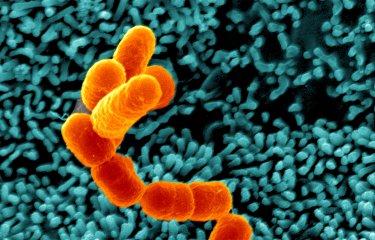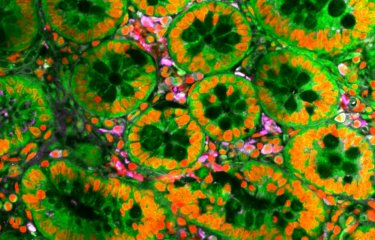Frequent and major outbreaks of meningococcal meningitis have swept through countries in the "African meningitis belt", a region south of the Sahara that stretches from Senegal to Ethiopia, for over a century. To tackle this public health emergency, a group A polysaccharide tetanus toxoid conjugate vaccine (also called MenAfriVac) was developed against meningococcus. Using data from several studies and drawing on a statistical mathematical model, scientists from the Institut Pasteur have sought to investigate the long-term vaccine response of this vaccine.
Meningitis (see our fact sheet) is an infection of the brain membranes – or meninges – caused by several types of virus, bacteria and fungi. Meningococcus (another name for the Neisseria meningitidis bacterium) is one of the main causes of acute meningitis. Meningococcal infections have a high mortality rate (10%) and a great epidemic potential.
In some countries in Africa where this infection is endemic, incidence rates during outbreaks often exceed 500 cases out of 100,000, with invasive meningococcal disease mortality rates ranging from 10 to 15% 2. Serogroup A Neisseria meningitidis is responsible for most outbreaks in this region, although outbreaks caused by other serogroups have been reported. In this context, the WHO Meningitis Vaccine Project oversaw the development of MenAfriVac (a highly immunogenic and affordable meningococcal A conjugate vaccine) with support from the Serum Institute of India Ltd. This vaccine has already been administered to millions of people in the "African meningitis belt", a region south of the Sahara between Senegal and Ethiopia. However, the efficacy of this vaccine over time and requirements in terms of booster vaccinations remain unknown.

The vaccine response under scrutiny
A team of scientists from the Institut Pasteur studied the immune response of individuals monitored after administration of this vaccine.
"We analyzed data concerning antibody responses using a statistical model of their kinetics. We were able to study immune response seropersistence and assess its implications for the length of protection", explains Michael White, a post-doctoral fellow in the Malaria: Parasites and Hosts Unit at the Institut Pasteur and lead author of the paper.
They estimate that 20 years after vaccination, estimated efficacy falls to just 50% in people vaccinated between 12 and 23 months and 70% in people vaccinated between 2 and 29 years. These findings, published in The Lancet Infectious Diseases, provide two conclusions.
The first is that the immunity conferred by systematic vaccination – as part of the Expanded Program on Immunization set up by the World Health Organization (WHO) and launched in 1974 – should remain at sufficient levels to provide over 50% protection over a twenty-year period. The second is that "population immunity could be increased by mass campaigns or by raising the vaccination age via the Expanded Program on Immunization" concludes Michael White.
Source
Antibody kinetics following vaccination with MenAfriVac: an analysis of serological data from randomised trials, The Lancet Infectious Diseases, March 2019
Michael White1,2, Olubukola Idoko3,4, Samba Sow5,6, Aldiouma Diallo7, Beate Kampmann3,8, Ray Borrow9, Caroline Trotter10
1 Malaria: Parasites and Hosts, Department of Parasites and Insect Vectors, Institut Pasteur, Paris, France
2 MRC Centre for Outbreak Analysis and Modelling, Department of Infectious Disease Epidemiology, Imperial College London, London, UK
3 Vaccines & Immunity Theme, Medical Research Council Unit The Gambia at The London School of Hygiene &Tropical Medicine, Fajara, The Gambia
4 Center for International Health, Medical Center of the University of Munich, Munich, Germany
5 Centre pour le Développement des Vaccins, Ministère de la Santé, Bamako, Mali
6 University of Maryland School of Medicine, Baltimore, Maryland, USA
7 Institut de Recherche pour le Développement, Niakhar, Senegal
8 The Vaccine Centre, London School of Hygiene & Tropical Medicine, London, UK
9 Vaccine Evaluation Unit, Public Health England, Manchester Royal Infirmary, Manchester, UK
10 Disease Dynamics Unit, Department of Veterinary Medicine, University of Cambridge, Cambridge, UK
This study is part of the Vaccinology and Immunotherapy Initiative of the Institut Pasteur's strategic plan for 2019-2023.





